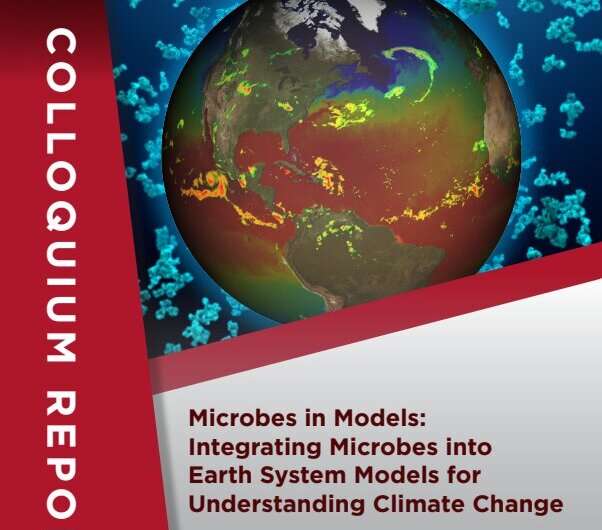This article has been reviewed according to Science X's and . have highlighted the following attributes while ensuring the content's credibility:
fact-checked
trusted source
proofread
New report underscores importance of microbes in climate change modeling

The American Academy of Microbiology, an honorific leadership group and scientific think tank within the American Society for Microbiology (ASM), has released a new colloquium report, "," examining the challenges of explicitly including microbial processes into Earth system models to improve model projections.
Climate models help scientists understand current environmental changes and make projections for Earth's future, which can inform society's responses to the negative effects of climate change. Microbes will also influence climate change by driving biogeochemical cycles through the consumption and production of greenhouse gases. Including microbial processes into Earth system models can improve model projections.
The Intergovernmental Panel on Climate Change (IPCC) "climate change impacts and risks are becoming increasingly complex and more difficult to manage." With an estimated 3.3 to 3.6 billion people living in areas that are highly vulnerable to climate change, Earth system models help refine the complexity of climate change into more manageable terms to guide planning strategies and mitigation actions to tackle the pressing threat of climate change to humanity.
However, fully understanding the feedback between climate change and microbes, and then including those processes in Earth system models, is a major challenge. The report outlines the top 10 challenges that must be overcome to better incorporate microbial processes into Earth system models. Major research challenges include:
- Tradeoffs in model complexity.
- Identifying microbial functional groups.
- Temporal and spatial scale of microbes versus global models.
- Data harmonization.
This report is the outcome of the colloquium convened by the Academy in December 2022. The event brought together more than 25 experts from both microbiology and climate modeling fields who provided multifaceted perspectives and insights. This colloquium is part of the Academy's five-year Climate Change & Microbes Scientific Portfolio focused on increasing the scientific understanding about climate change and microbes, informing climate change policies and driving market innovations.
Provided by American Society for Microbiology




















